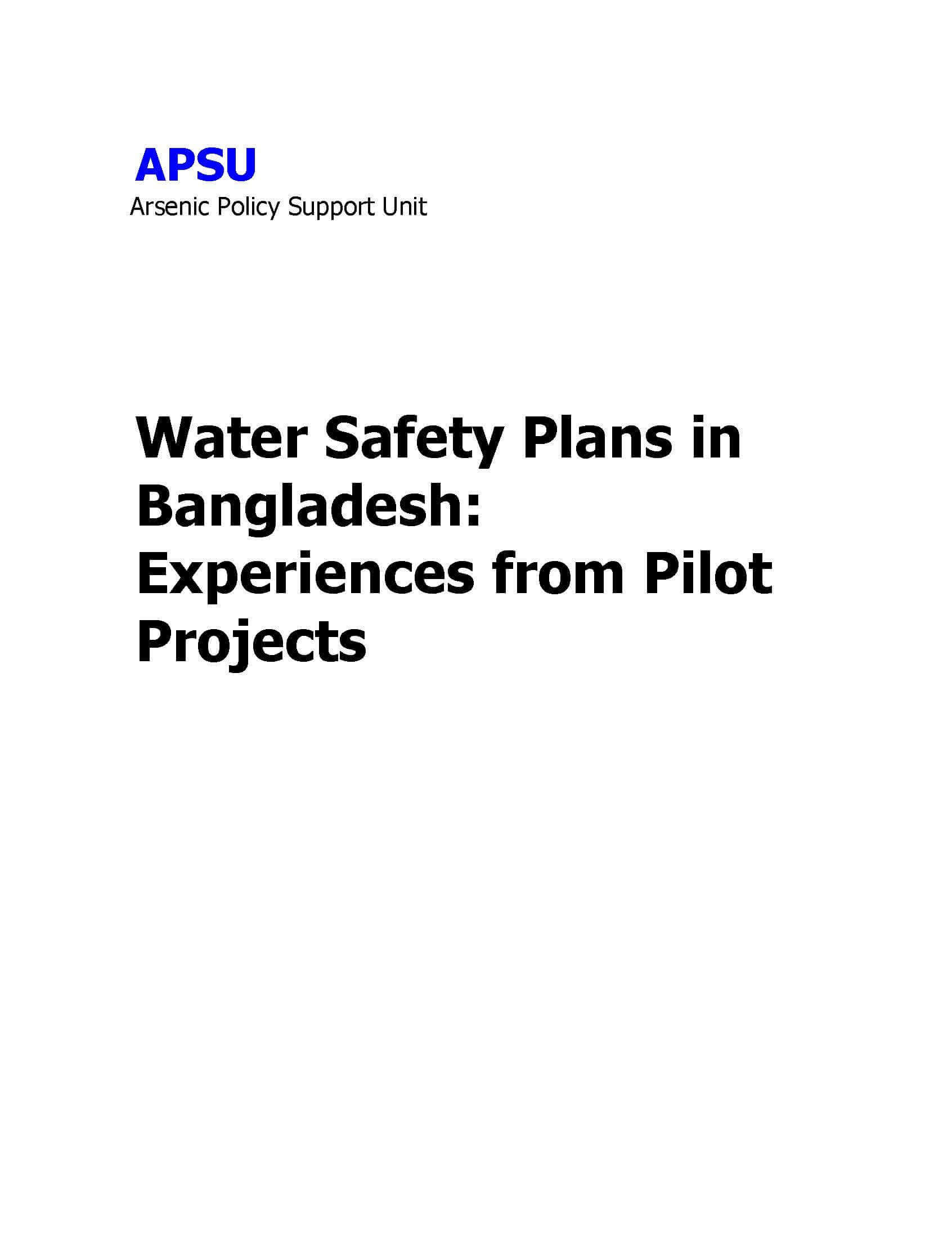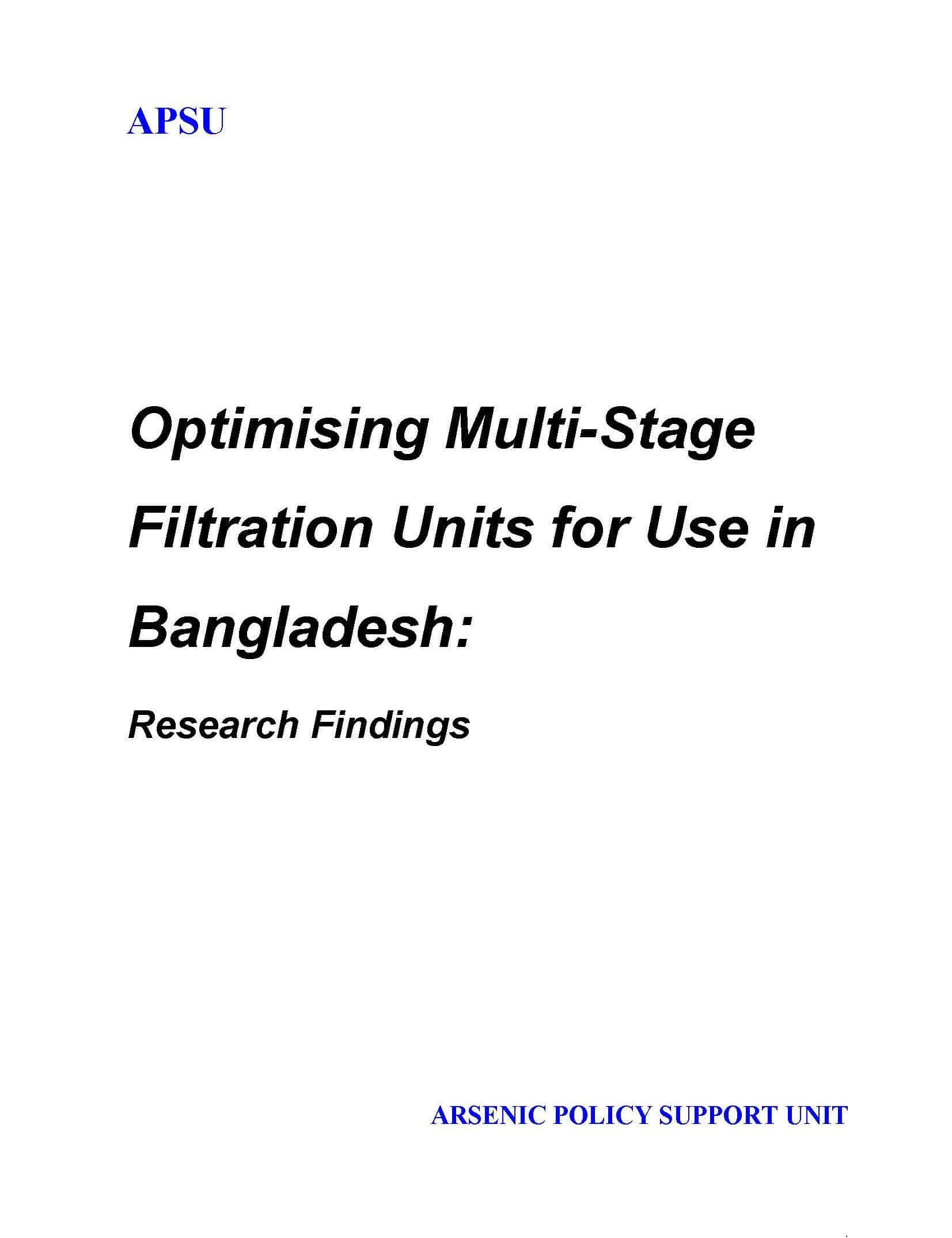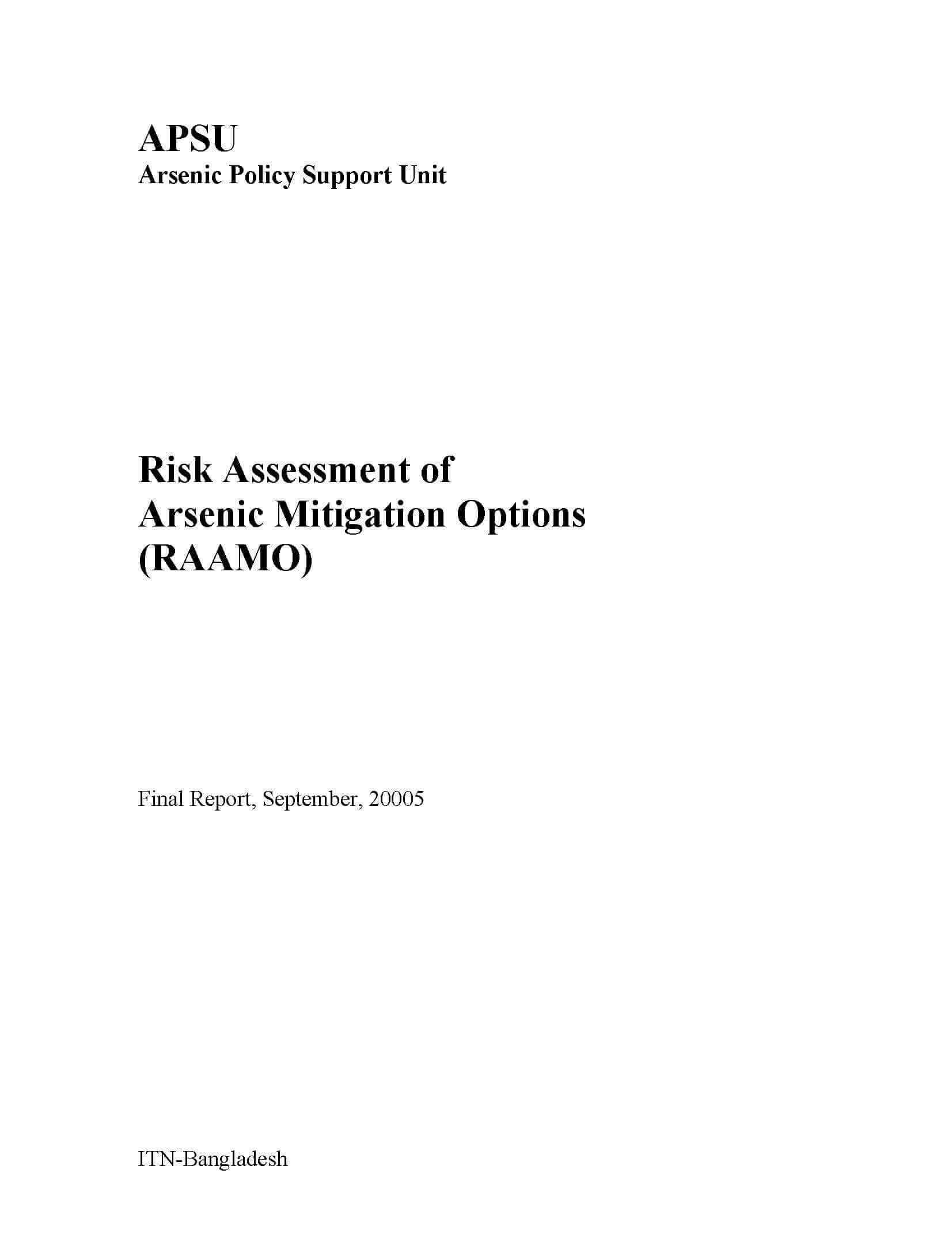Water Safety Plans in Bangladesh: Experiences from Pilot Projects
Publisher(s): LGD, GoB, Ministry of Local Government, Rural Development and Co-operatives, Arsenic Policy Support Unit (APSU)

Category(s): National Documents
Language: English
Publication Year: 2006
Document Type: PDF
ISBN 10: 9843231490
This report describes the process of implementation of Water Safety Plans in Bangladesh since 2004. The focus of attention has been on rural water supplies, although there has also been some experience with Pourshava piped water supplies. The World Health Organization (WHO) issued the 3rd edition of their Guidelines for Drinking Water Quality in 2004 recommending that Water Safety Plans (WSPs) should be introduced in all water supplies as a key component of water safety management. The water supply sector in Bangladesh has taken this up and the major rural and small town water supply programmes have made commitments to implement water safety plans in their future programmes. In order for WSPs to be utilised effectively in Bangladesh, the general guidance available from WHO (WHO, 2004; Davison et al., 2005) needed to be modified to reflect local conditions.
Keywords
Water Safety, Pilot Projects, Water
Copyright
This is an open access work distributed under the terms of the Creative Commons Attribution License, which permits unrestricted use, distribution, and reproduction in any medium, provided the original work is properly cited.
You may be interested in
Optimising Multi-Stage Filtration Units for Use in Bangladesh
Publisher(s): LGD, GoB, Ministry of Local Government, Rural Development and Co-operatives, Arsenic Policy Support Unit (APSU)
- Published: February, 2006
- Language:English
Risk Assessment of Arsenic Mitigation Options (RAAMO)
Publisher(s): Arsenic Policy Support Unit (APSU)
Author(s): Abu Jafar Shamsuddin, Dan Deere, Feroze Ahmed, Guy Howard, Haroon Ur Rashid, Shamsul Gafur Mahmud
- Published: September, 2005
- Language:English


No comment yet.